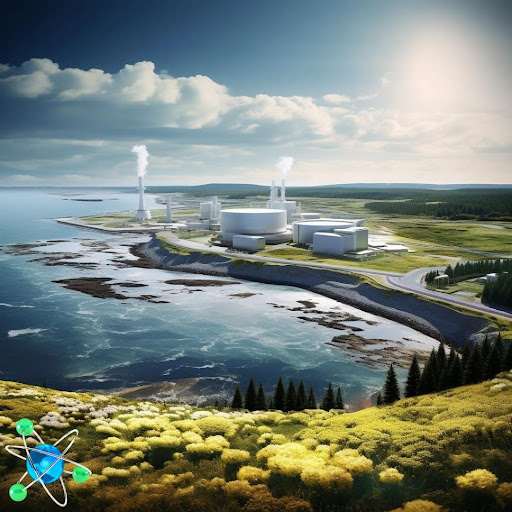
- Comprehensive Clean Energy Strategy:
- New Brunswick unveils a multifaceted plan focusing on wind, solar, hydrogen, biofuels, and Small Modular Reactors (SMRs) to achieve a sustainable, affordable, and secure energy future.
- Collaboration and Innovation in Action:
- The strategy underscores collaborative efforts between the government and utility NB Power, emphasizing partnerships, grid upgrades, and efficient nuclear operations to balance environmental goals with economic growth.
- Global Impact of Local Initiatives:
- New Brunswick’s commitment to reducing greenhouse gas emissions aligns with a global energy transition. Noteworthy achievements include SMR deployment and collaboration with provinces, reflecting a shared vision for a cleaner, net-zero economy by 2035.
New Brunswick, Canada, is charting a bold course towards a sustainable energy future, as outlined in the strategic plan “Powering our Economy and the World with Clean Energy – Our Path Forward to 2035.” The plan meticulously addresses key pillars such as affordability, energy security, reliability, regulatory reform, and economic growth.
At its core, the strategy advocates for a substantial expansion in renewable energy sources. This includes a nearly five-fold increase in wind and solar capacity. Notably, the plan places a significant emphasis on Small Modular Reactors (SMRs), with the first 150 MWe expected to come online in 2030-2031, followed by an additional 450 MWe in 2035.
Recognizing the transitional nature of the energy landscape, the strategy acknowledges the role of traditional natural gas as a temporary solution, both locally and globally. This pragmatic approach seeks to balance the immediate energy needs with the imperative to reduce greenhouse gas emissions.
The plan extends beyond electricity generation, addressing the broader energy ecosystem. Transmission upgrades and improved connectivity within Atlantic Canada are identified as critical components to balance the grid effectively. Additionally, the transport sector is slated for transformation, with the integration of electric vehicle charging stations and an increased reliance on biofuels and hydrogen.
Collaboration is a key theme in the strategy, with the government working closely with utility NB Power to enhance the operating efficiency of the existing Point Lepreau nuclear generating station. This includes exploring partnerships with other nuclear operators to improve performance, mitigate operational risks, and reduce costs.
New Brunswick Premier Blaine Higgs underscores the transformative potential of this strategy, emphasizing the opportunity to reshape energy consumption patterns for a cleaner environment, heightened economic growth, and a secure, affordable energy supply. Mike Holland, the province’s Natural Resources and Energy Development Minister, notes the global context of the energy transition and anticipates a collective reduction of greenhouse gas emissions by nearly half by 2035.
This initiative aligns with NB Power’s own strategic plan, which outlines the phased elimination of coal by 2030 and the ambitious goal of achieving net-zero electricity supply by 2035. The utility, a Crown Corporation owned by the province, currently leverages a mix of nuclear, hydro, coal, oil, and diesel-powered stations.
In a collaborative effort, NB Power, in partnership with SMR developer ARC Clean Technology Canada Inc, has submitted environmental impact assessments and license applications for an SMR at Point Lepreau. This deployment of ARC Clean Technology Canada Inc’s ARC-100 sodium-cooled fast reactor is part of a joint strategic plan on SMR development and deployment released by the governments of Ontario, Saskatchewan, New Brunswick, and Alberta in 2022.

